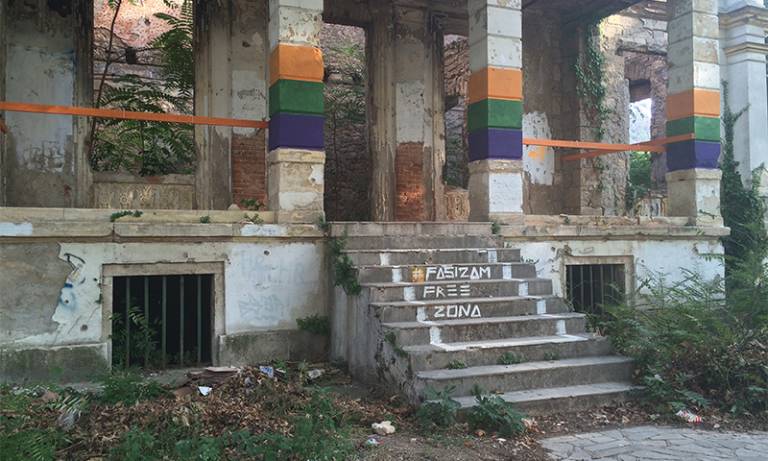Book Launch "The Divided City and the Grassroots. The (un)making of ethnic divisions in Mostar
30 May 2018, 5:30 pm–7:00 pm

Event Information
Open to
- All
Organiser
-
Development Planning Unit
Location
-
DPU 101, 34 Tavistock Square, WC1H 9EZ
Chaired by Dr. Catalina Ortiz;
Discussants Dr Giulia Carabelli and Dr Adam Kaasa
Nostalgically remembered as one of the most ‘mixed’ cities of Yugoslavia, Mostar became an ethnically ‘divided city’ in the 1990s when, following the violent dismantling of the Socialist Federal Republic of Yugoslavia, it was formally partitioned between antagonistic communities – Croat and Bosniak – in order to bring hostilities to an end. In 2004, the city’s administration was forcefully re-united by external actors and, since then, scholars, peace-makers, and urban practitioners have amply researched the misfiring of the (imposed) reunification, focusing on the resulting Kafkaesque bureaucracy, the segregated educational system, and the contested administration as means to expose the national and international failure to re-create a tolerant, safe and inclusive environment.
However, less attention has been paid to actors, initiatives, and events that actually disrupt the encompassing logics of this ‘divided city’, which would create the very possibility for narrating (and imagining) Mostar as more than divided. Based on participatory research in Mostar, this book aims to challenge and destabilise the representation of the city as merely a site of ethnic divisions. Inspired by the work of Henri Lefebvre, and in dialogue with critical urban theories, the book explores the becoming and un-becoming of Mostar as an ethnically divided city.
It discusses how space is imagined, designed, and built at the level of political administration, and the various practices through which the city is re-appropriated, experienced, and lived through patterns of everyday life, thus emphasising the conjuncture and disjuncture between the actual, the planned and the possible. By investigating not only how the city is administered, planned, represented (in political and academic discourses) but also the ways in which the city is lived and used by its citizens, the book reveals the emancipatory possibilities that are embedded within (yet simultaneously suppressed by) quotidian practices of inter-ethnic cooperation.
The book launch will be chaired by Dr. Catalina Ortiz and will involve a conversation between Dr Giulia Carabelli and Dr Adam Kaasa (Royal College of Art) about the book.
Bio:
Dr. Giulia Carabelli is a Research Fellow at the Max Planck Institute for the Study of Religious and Ethnic Diversity (Germany) where she is a member of the 'Empires of memory' research group. Her doctoral work, part of the ‘Conflict in Cities and the Contested State’ project, examined the process of reconstructing Mostar in Bosnia-Herzegovina. Giulia's research interest is located at the intersection of urban sociology, cultural studies, and political theory; her work has so far explored the roles and potential of grassroots movements and civil society actors in the making of urban spaces especially in contested and politically fragile environments.
 Close
Close

